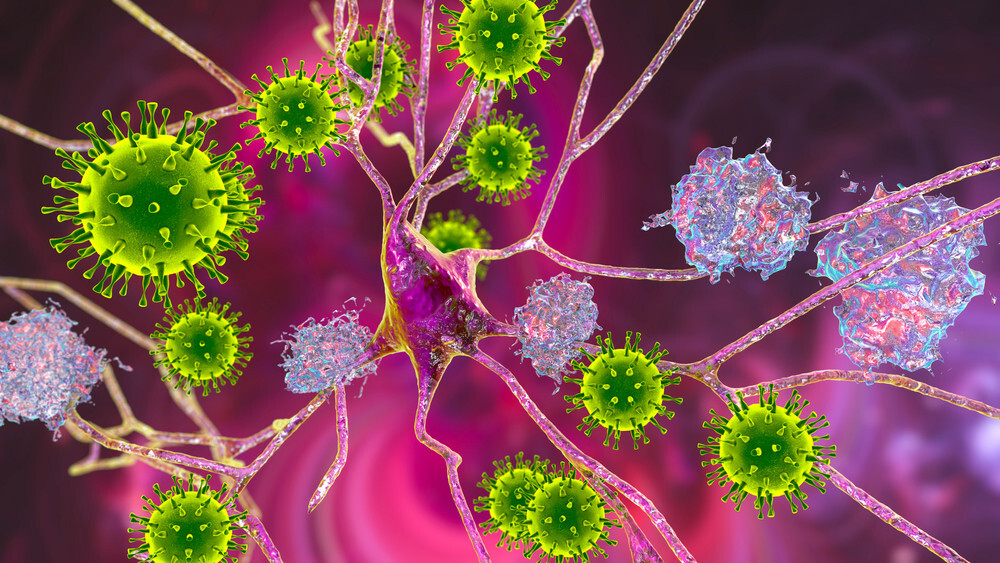
Sinus Infections and Functional Medicine: How Testing and Root Cause Care Make a Difference
A Functional Medicine Perspective in Saint Paul
At O’Keefe Matz Functional Health Clinic in Saint Paul, we know how frustrating it can be to deal with recurring sinus infections and constant sinus headaches. Our approach is different from conventional care because we take time to look for the root causes and personalize treatment. Many of our patients come to us after trying multiple rounds of antibiotics without lasting relief. By combining advanced diagnostic testing like nares culture labs with natural therapies and functional medicine strategies, we are able to help patients find long term solutions rather than just temporary fixes.
We are a friendly, welcoming clinic that believes healthcare should feel calm and supportive. Whether you are struggling with chronic sinus congestion, headaches, or ongoing infections, we take the time to listen and to create a plan that works for you.
Why Sinus Infections Happen
Sinus infections, also called sinusitis, occur when the air filled spaces in the skull (sinuses) become inflamed and unable to drain properly. This creates a breeding ground for bacteria, viruses, or even fungi. While most people think of sinus infections as short lived colds that linger, functional medicine views them as a signal that something deeper in the body’s defense system needs attention.
The most common triggers include:
• Viral infections such as the common cold that weaken the mucosal barrier
• Bacterial overgrowth such as Staphylococcus aureus, Proteus mirabilis, Haemophilus influenzae, or Streptococcus pneumoniae
• Fungal organisms in cases of chronic sinus inflammation or mold exposure
• Immune dysfunction or allergies that keep sinus passages irritated
• Environmental factors such as air pollution, seasonal changes, or frequent antibiotic use that alter the balance of the nasal microbiome
From a functional medicine perspective, we do not just ask “What bug caused this infection?” We also ask “Why is the immune system struggling to maintain balance in the first place?”
Symptoms That May Signal More Than a Simple Cold
Sinus infections can present with:
• Nasal congestion and difficulty breathing through the nose
• Thick, discolored nasal discharge
• Pressure or pain in the face, especially around the eyes, cheeks, and forehead
• Reduced sense of smell or taste
• Fatigue, brain fog, or irritability
Headaches and Sinus Infections
Headaches are one of the most underappreciated signs of sinus dysfunction. Many people assume the pain only comes from leaning forward or pressure changes, but sinus related headaches can appear in several ways:
• Facial pressure headaches: A deep, dull ache around the cheeks, eyes, or forehead caused by swollen sinus passages
• Crown or vertex pain: Infections in the sphenoid sinus located deeper in the skull can cause pain on the top of the head or radiating to the back of the skull
• Dental or jaw pain: Maxillary sinus infections can mimic tooth pain, often sending patients to the dentist before realizing it is sinus related
• Migraine like pain: Sinus inflammation can activate the trigeminal nerve, triggering sharp, throbbing pain with light or sound sensitivity
• Chronic tension headaches: Recurrent infections cause ongoing inflammation that stresses surrounding neck and scalp muscles, resulting in tension type pain
When headaches persist or change character, it is important to investigate the microbiology behind the sinus infection to determine whether resistant bacteria, fungi, or a chronic inflammatory process is at play.
The Role of Microbiology Testing: Nares Culture Labs
A nares culture is a diagnostic test that collects a sample from just inside the nostrils. The lab then grows and analyzes the organisms to identify what is living in the nasal passages.
This test is especially valuable in functional medicine for several reasons:
-
Identifying hidden pathogens
Chronic or resistant infections may involve organisms such as MRSA (Methicillin Resistant Staphylococcus aureus) or gram negative bacteria like Proteus mirabilis. A nares culture pinpoints exactly what organisms are present and guides both conventional and integrative treatment strategies. -
Personalized treatment plans
Instead of guessing which antibiotic or antimicrobial may help, culture results provide a sensitivity report. This shows which drugs or natural agents are most effective against the specific bacteria found in your sinuses. -
Understanding colonization vs infection
Sometimes the nares harbor bacteria that do not cause illness until immune defenses drop. Knowing whether someone is a carrier of Staph aureus or MRSA can help clinicians decide if proactive treatment is warranted. -
Guiding integrative therapies
In addition to conventional antibiotics, results may guide supportive therapies such as herbal antimicrobials, nasal probiotic sprays, saline rinses with targeted botanicals, or Frequency Specific Microcurrent protocols designed to calm inflammation and improve circulation.
Functional Medicine Strategies for Sinus Health
Treatment of sinus infections in functional medicine is both symptom relieving and root cause focused.
• Clear the pathways: Nasal irrigation with saline or xylitol solutions helps thin mucus and flush irritants
• Support the microbiome: Both gut and nasal probiotics may help restore healthy bacterial balance
• Reduce inflammation: Nutrients such as quercetin, vitamin C, N acetylcysteine (NAC), and omega 3s calm mucosal swelling
• Strengthen immune function: Vitamin D, zinc, and adaptogenic herbs such as astragalus support resilience against infection
• Target the pathogen when needed: Based on nares culture results, appropriate antimicrobials whether pharmaceutical or botanical can be selected with precision
• Address environmental triggers: Mold exposure, dust, or food sensitivities often perpetuate sinus inflammation and should be identified and removed where possible
Key Takeaway
Sinus infections are more than just a nuisance. When they become chronic or severe, they reflect a deeper imbalance in the immune system and microbiome. Microbiology testing such as nares culture labs provides a powerful tool for identifying the exact organisms at play, allowing for precise and personalized treatment.
At O’Keefe Matz Functional Health Clinic in Saint Paul, our mission is to make care both personal and effective. We combine the best of functional medicine, root cause investigation, natural therapies, and lifestyle support with advanced testing to help patients finally break the cycle of recurrent sinus infections, sinus headaches, and chronic congestion. Our goal is not just to relieve symptoms, but to help you restore balance, resilience, and lasting sinus health in a warm and supportive setting.
About Dr. Shannon O’Keefe
Dr. Shannon O’Keefe, DC, DCBCN is a specialist in Functional Medicine and a Board Certified Clinical Nutritionist. She is a graduate of an Internal Medicine program and brings extensive training in clinical nutrition, advanced diagnostics, and integrative care. Dr. O’Keefe focuses on identifying the root causes of chronic health conditions through in depth evaluation, advanced lab testing, and personalized nutrition plans. Her passion is helping patients restore energy, resolve persistent symptoms, and achieve long term wellness through a functional medicine approach that blends science with compassionate care.
References
-
Sakr A, et al. Staphylococcus aureus Nasal Colonization: An Update on Mechanisms, Epidemiology, Risk Factors and Subsequent Infections. Front Microbiol. 2018. https://pubmed.ncbi.nlm.nih.gov/30349525/
- Koeller K, et al. Microbiome and Culture Based Analysis of Chronic Rhinosinusitis. mBio. 2018. https://pubmed.ncbi.nlm.nih.gov/29755418/
- Hsiao CJ, et al. Nasal Microbiota and Infectious Complications After Elective Surgical Procedures. JAMA Netw Open. 2021. https://jamanetwork.com/journals/jamanetworkopen/fullarticle/2779303
- De Boeck I, et al. Anterior Nares Diversity and Pathobionts Represent Sinus Microbiome Signature. mSphere. 2019. https://pubmed.ncbi.nlm.nih.gov/31776238/
- Rosenstein R, et al. The Staphylococcus aureus-antagonizing human nasal microbiome. Microbiome. 2024. https://microbiomejournal.biomedcentral.com/articles/10.1186/s40168-024-01913-x
- Mahdavinia M, et al. A Comprehensive Review of the Nasal Microbiome in Chronic Rhinosinusitis. Curr Allergy Asthma Rep. 2016. https://pubmed.ncbi.nlm.nih.gov/26510171/
- Viet NT, et al. Bacterial Culture Results and Antibiograms in Chronic Rhinosinusitis Patients in Mekong Delta, Vietnam. Open Microbiol J. 2024. https://openmicrobiologyjournal.com/VOLUME/18/ELOCATOR/e18742858322304/FULLTEXT/
- Brown AF, et al. Staphylococcus aureus Colonization: Modulation of Host Immune Response and Co-Colonizing Microbiota. Front Immunol. 2014. https://pubmed.ncbi.nlm.nih.gov/24409186/
- Fagnan LJ, et al. Acute Sinusitis: A Cost-Effective Approach to Diagnosis. Am Fam Physician. 1998. https://pubmed.ncbi.nlm.nih.gov/9835855/



